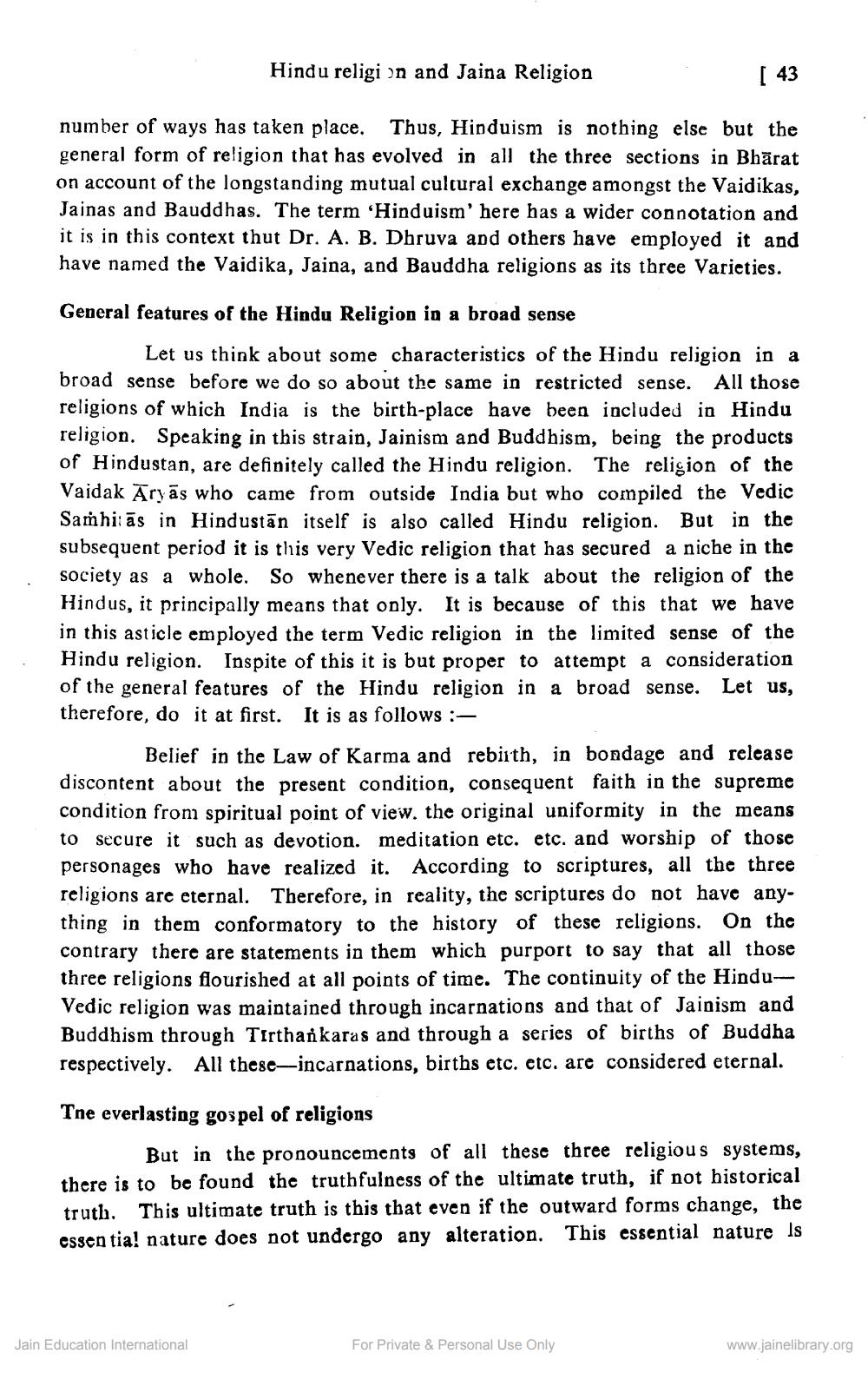________________
Hindu religion and Jaina Religion
[ 43
number of ways has taken place. Thus, Hinduism is nothing else but the general form of religion that has evolved in all the three sections in Bhārat on account of the longstanding mutual cultural exchange amongst the Vaidikas, Jainas and Bauddhas. The term 'Hinduism' here has a wider connotation and it is in this context thut Dr. A. B. Dhruva and others have employed it and have named the Vaidika, Jaina, and Bauddha religions as its three Varieties.
General features of the Hindu Religion in a broad sense
Let us think about some characteristics of the Hindu religion in a broad sense before we do so about the same in restricted sense. All those religions of which India is the birth-place have been included in Hindu religion. Speaking in this strain, Jainism and Buddhism, being the products of Hindustan, are definitely called the Hindu religion. The religion of the Vaidak Āryās who came from outside India but who compiled the Vedic Samhi:ās in Hindustan itself is also called Hindu religion. But in the subsequent period it is this very Vedic religion that has secured a niche in the society as a whole. So whenever there is a talk about the religion of the Hindus, it principally means that only. It is because of this that we have in this asticle employed the term Vedic religion in the limited sense of the Hindu religion. Inspite of this it is but proper to attempt a consideration of the general features of the Hindu religion in a broad sense. Let us, therefore, do it at first. It is as follows:
Belief in the Law of Karma and rebirth, in bondage and release discontent about the present condition, consequent faith in the supreme condition from spiritual point of view, the original uniformity in the means to secure it such as devotion. meditation etc. etc. and worship of those personages who have realized it. According to scriptures, all the three religions are eternal. Therefore, in reality, the scriptures do not have anything in them conformatory to the history of these religions. On the contrary there are statements in them which purport to say that all those three religions flourished at all points of time. The continuity of the HinduVedic religion was maintained through incarnations and that of Jainism and Buddhism through Tirthankaras and through a series of births of Buddha respectively. All these-incarnations, births etc. etc. are considered eternal.
Tne everlasting gospel of religions
But in the pronouncements of all these three religious systems, there is to be found the truthfulness of the ultimate truth, if not historical truth. This ultimate truth is this that even if the outward forms change, the essential nature does not undergo any alteration. This essential nature Is
Jain Education International
For Private & Personal Use Only
www.jainelibrary.org




